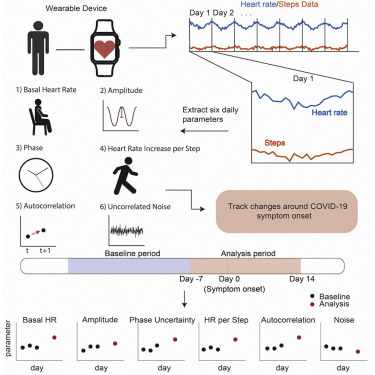A recent study published in suggests that males and females exhibit differential physiological responses to COVID-19 infections, with males showing larger increases in certain vital parameters compared to females. Led by Lorenz Risch of the Private University in the Principality of Liechtenstein and collaborators, the study utilized data from wearable devices to analyze physiological changes associated with COVID-19 infection.
The study, known as the COVI-GAPP study, was part of the COVID-19 Remote Early Detection COVID-RED Consortium and included data from 1,163 individuals collected through the Ava wearable medical device. Over 1.5 million hours of physiological data were recorded, with 127 participants testing positive for COVID-19 during the study period.
Among the 82 participants with sufficient data quality for analysis, males exhibited larger increases in skin temperature, breathing rate, and heart rate during COVID-19 infection compared to females. Additionally, male participants showed a greater decrease in heart rate variability and maintained higher levels of breathing rate and heart rate during the recovery period compared to their female counterparts.
The study accounted for potential confounding variables such as BMI, age, hypertension, and alcohol and drug use, finding no significant impact of these variables on the observed sex-specific physiological differences during infection. However, hormonal changes across the menstrual cycle among female participants were not fully accounted for in the analysis.
The findings suggest that sex-specific biological responses to COVID-19 infection may contribute to the higher mortality and hospitalization rates observed in male COVID-19 patients. Further research is needed to understand the underlying biological mechanisms driving these sex differences.
The authors highlight the value of utilizing wearable technology in research to gain deeper insights into diseases and their impacts, which could lead to more timely and accurate diagnoses and advancements in precision medicine.
The study provides important insights into sex-specific variations in physiological responses to COVID-19 infection, emphasizing the need for tailored approaches in understanding and managing the disease based on sex differences.
